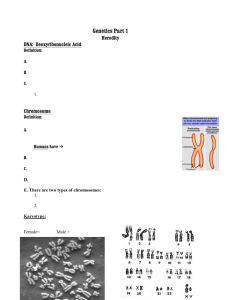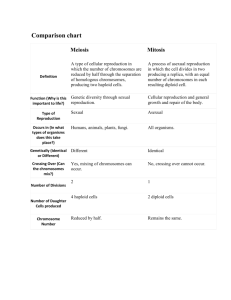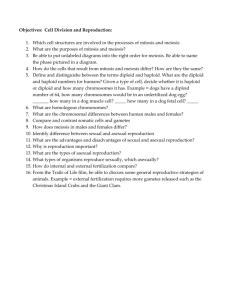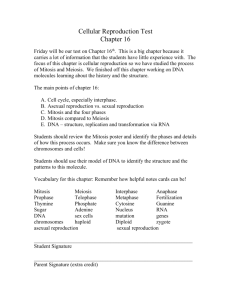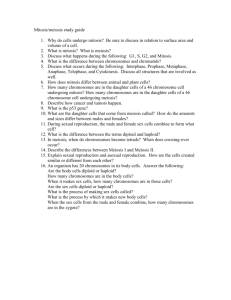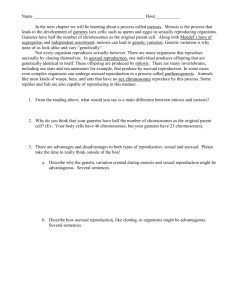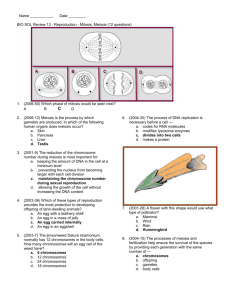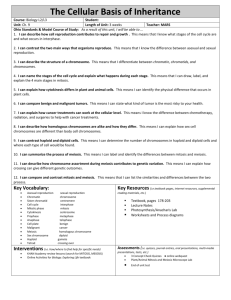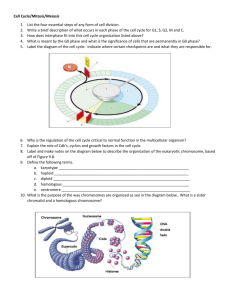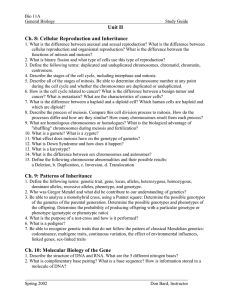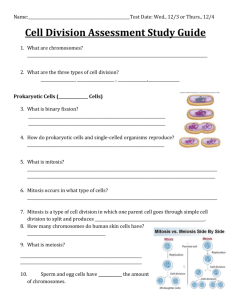Meiosis vs. Mitosis: Biology Comparison Worksheet
advertisement
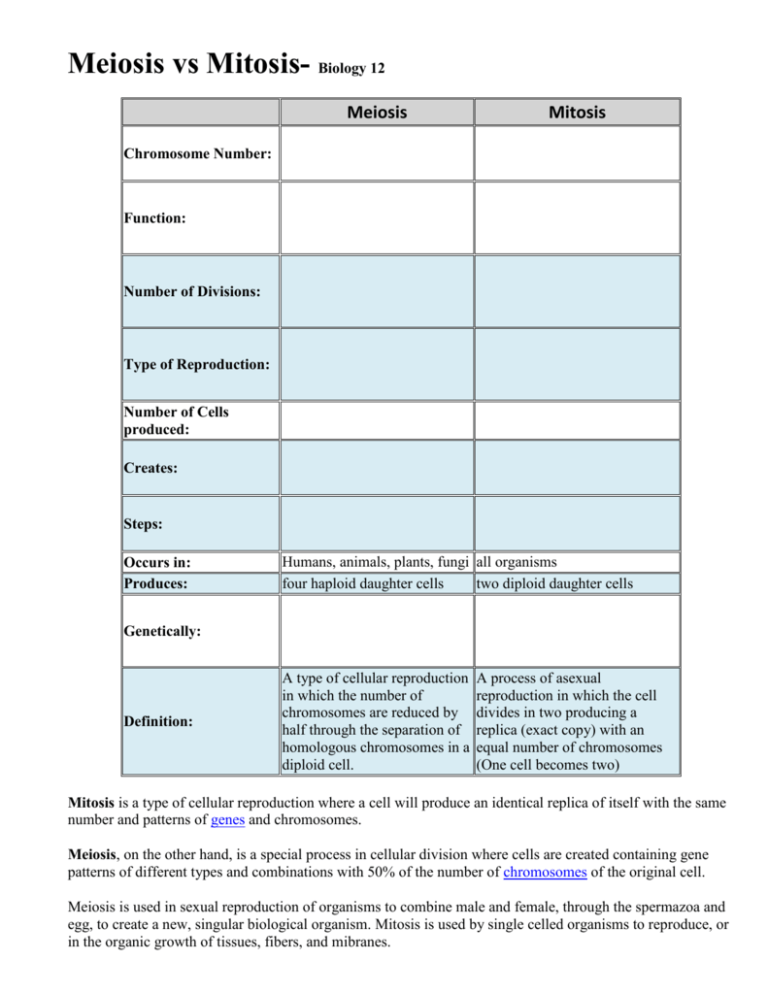
Meiosis vs Mitosis- Biology 12 Meiosis Mitosis Chromosome Number: Function: Number of Divisions: Type of Reproduction: Number of Cells produced: Creates: Steps: Occurs in: Produces: Humans, animals, plants, fungi all organisms four haploid daughter cells two diploid daughter cells Genetically: Definition: A type of cellular reproduction in which the number of chromosomes are reduced by half through the separation of homologous chromosomes in a diploid cell. A process of asexual reproduction in which the cell divides in two producing a replica (exact copy) with an equal number of chromosomes (One cell becomes two) Mitosis is a type of cellular reproduction where a cell will produce an identical replica of itself with the same number and patterns of genes and chromosomes. Meiosis, on the other hand, is a special process in cellular division where cells are created containing gene patterns of different types and combinations with 50% of the number of chromosomes of the original cell. Meiosis is used in sexual reproduction of organisms to combine male and female, through the spermazoa and egg, to create a new, singular biological organism. Mitosis is used by single celled organisms to reproduce, or in the organic growth of tissues, fibers, and mibranes.

